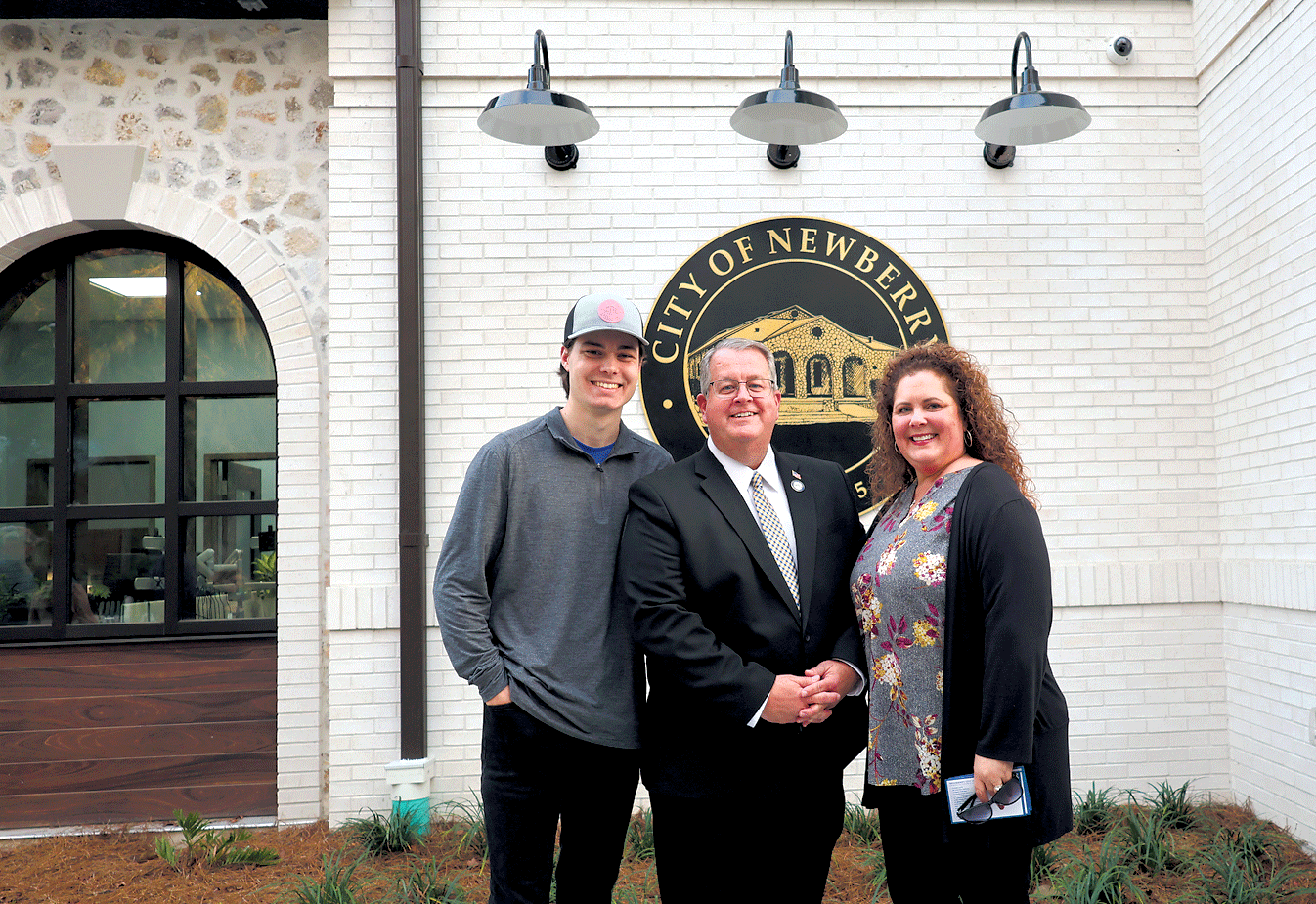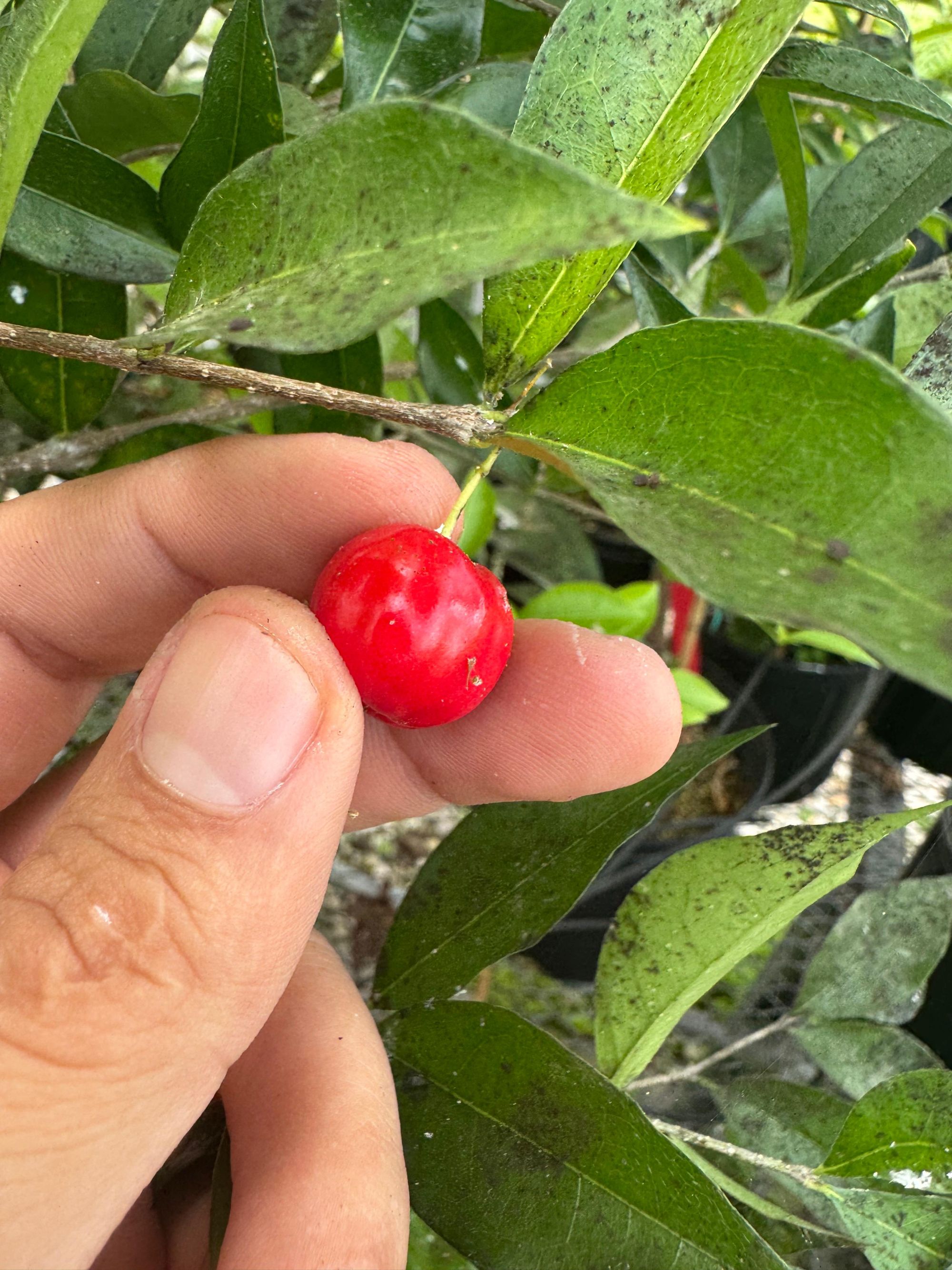The following is a press release provided by the UF Institute of Food and Agricultural Sciences (UF/IFAS). It has been published here as received, without additional reporting or editing by Alachua County Today staff.
Aug. 14, 2025 — Consumers value Acerola, also called the Barbados cherry, for its health benefits, and it thrives in the Caribbean, Mexico, Brazil and other parts of Central and South America.
University of Florida researchers are working with a Brazilian colleague to see if they can advance the genetic understanding of this nutritious fruit and grow it in the Sunshine State.
The Centers for Disease Control and Prevention reports that only 1 in 10 American adults meets the recommended fruit and vegetable intake, making the availability of more nutritious fruits helpful. Some people grow Barbados cherry trees in their yards in Florida – and eat the nutritious fruit.
The cherries are rich sources of vitamin C, carotenoids, anthocyanins and phenolic compounds with antioxidant and anti-inflammatory properties. Furthermore, they can provide over 1,800% of the daily recommended intake of vitamin C in just one cup.
To help bring consumers all that nutrition, scientists with the UF Institute of Food and Agricultural Sciences (UF/IFAS) are evaluating the genetic diversity of acerola and adapting cultivation practices to local conditions.
“These nutritional benefits have elevated acerola to superfood status, making it marketable for fresh consumption, desserts, supplements or juice” said Felipe Ferrao, who’s leading the project for UF/IFAS. “They can contain up to 100 times more vitamin C than oranges, making them a powerful candidate for enhancing and supplementing our diet.”
As part of this effort, scientists are trying to grow acerola in three major field trials around Florida: at the UF/IFAS Plant Science Research and Education Center in Citra, at a farm in Pierson and at the UF/IFAS Tropical Research and Education Center (TREC) in Homestead.
Through these trials, researchers are trying to find out if different types of acerola perform well under varying climates, soil types and management systems. Their research will lay the groundwork for future production across the state.
"Our central goal is to determine the best regions and practices for growing acerola, while understanding how climate conditions influence fruit quality and nutritional value,” Ferrao said.
Beyond its nutritional benefits, acerola also has the potential to help mitigate the ongoing crisis in citrus production and become an alternative crop for local producers.
“As citrus and avocado growers struggle, it’s critical that UF/IFAS help farmers grow more emerging crops,” said Ferrao a UF/IFAS assistant research scientist in horticultural sciences. He used the juice industry as an example. “With approximately 90% of oranges grown in Florida used for making orange juice, growers could take advantage of the existing citrus juice infrastructure, make acerola juice that is delicious, refreshing and nutritious.”
Among others, Ferrao is working with Patricio Muñoz and Ali Sarkhosh -- associate professors of horticultural sciences at the main UF campus in Gainesville -- and Jonathan Crane, a professor and tropical fruit Extension specialist and Jugpreet Singh, an assistant professor of tropical fruit breeding and genetics – both at TREC.
This research also includes a partnership with Flavio França, a researcher and acerola specialist from the Embrapa Semiarido, in Brazil.
"While Brazil is the top producer of acerola, the University of Florida has an important role,” Franca said, citing the ‘Florida Sweet’ acerola, which was grown at TREC in the 1950s.
The research group believes that the integration of better management, genomic tools and breeding techniques can accelerate the identification of acerola plants that meet the current demand of fruits with unique flavor attributes, higher yield and high nutritional values.
“We envision acerola could as a viable crop for agricultural future, contributing to economic growth and food security,” Ferrao said.
Acerola Cherry Could Be a New, Nutritious Crop for Florida
Tools
Typography
- Font Size
- Default
- Reading Mode















 Williams joined the department in 2023 and is currently assigned to the Criminal Investigations Division. In that role, she works alongside local law enforcement partners in the Internet Crimes Against Children (ICAC) Unit, where the department said her “dedication, expertise, and persistence help protect the most vulnerable members of our community.”
Williams joined the department in 2023 and is currently assigned to the Criminal Investigations Division. In that role, she works alongside local law enforcement partners in the Internet Crimes Against Children (ICAC) Unit, where the department said her “dedication, expertise, and persistence help protect the most vulnerable members of our community.”
 Using an inhaler seems straightforward, but it’s actually a high-precision task. If the technique isn't quite right, the medication often ends up hitting the back of your throat instead of reaching your lungs where it’s needed.
Using an inhaler seems straightforward, but it’s actually a high-precision task. If the technique isn't quite right, the medication often ends up hitting the back of your throat instead of reaching your lungs where it’s needed.


